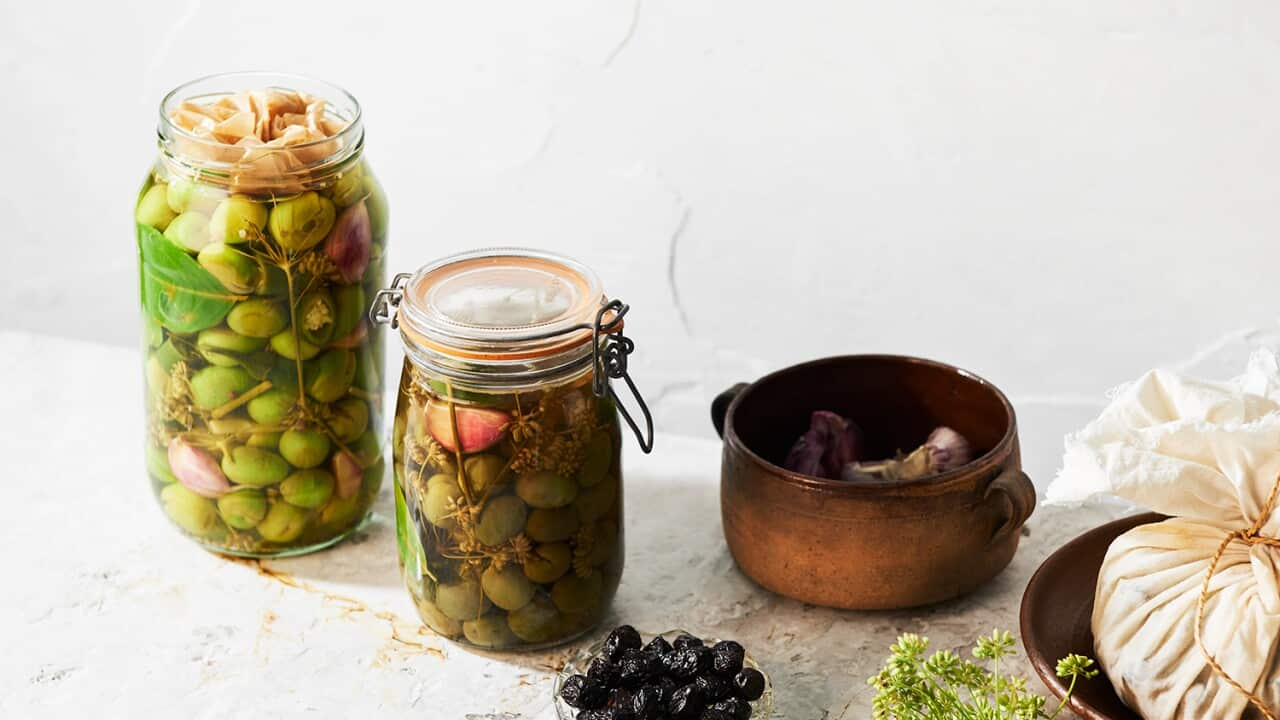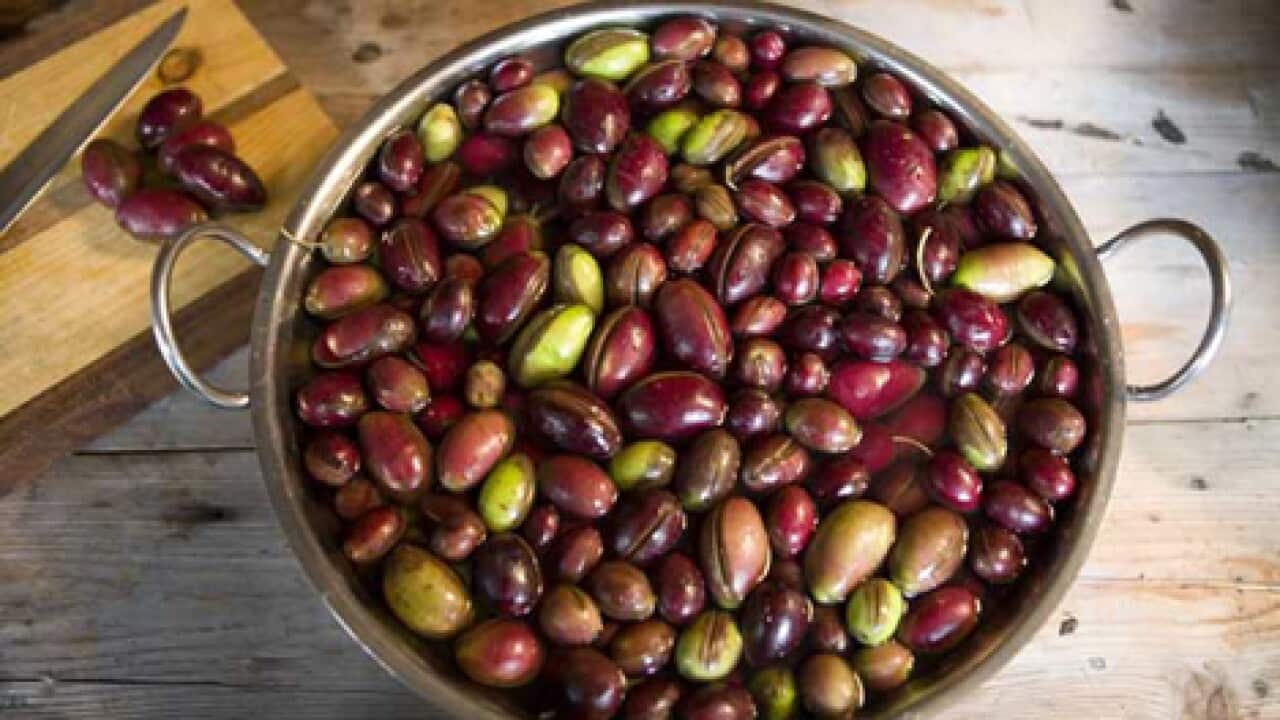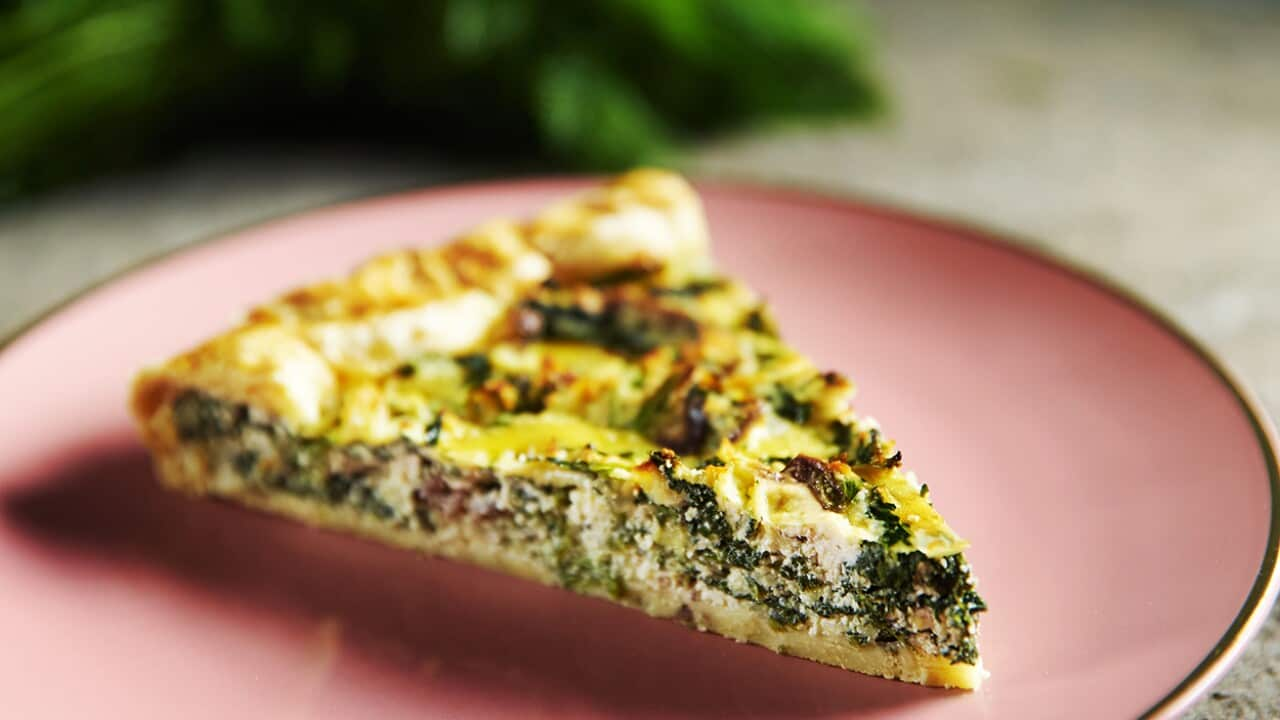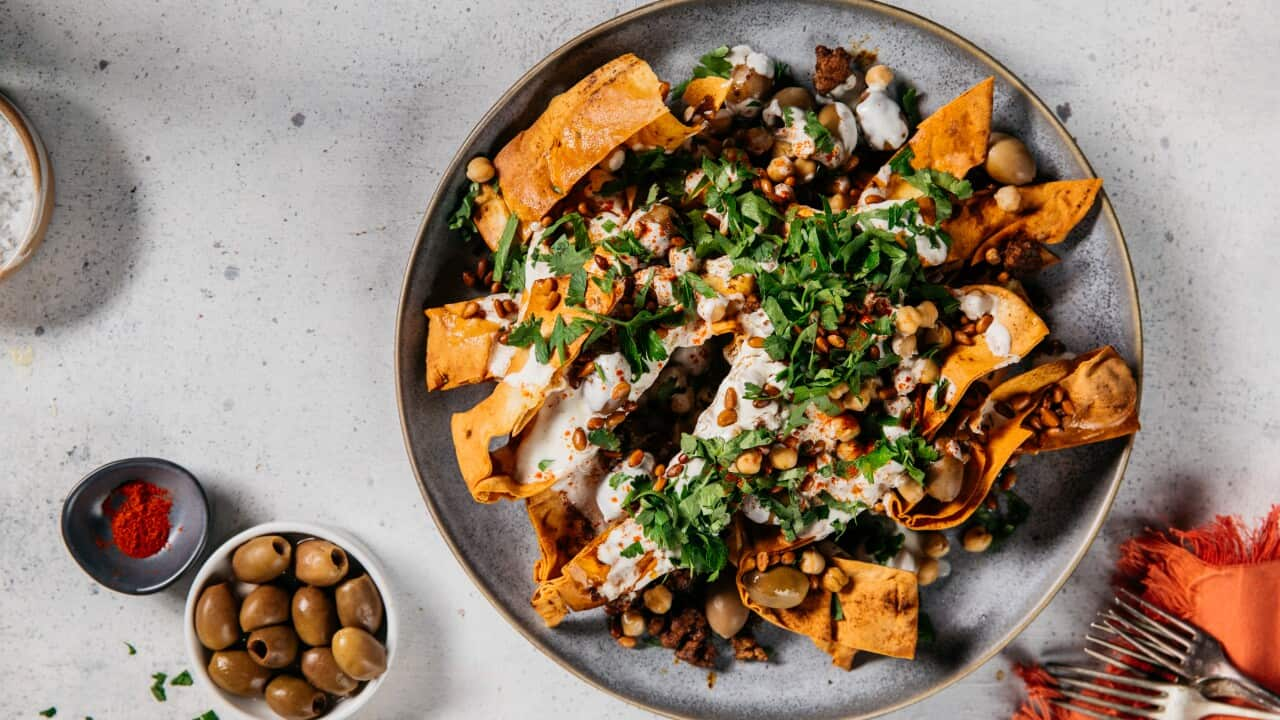The end of autumn to the start of winter is prime olive harvest time. If you've spotted some good-looking olives at a market or have a tree at home and would like to pickle your own, it's simpler than you'd think. However, there are a few crucial steps to ensure success.
The harvest
Picking olives off a tree is considered the most laborious part of the process. When they're green and starting to brown in parts, they're officially ripe. You can also pick olives when they're brown or black, but picking them while they're green means they're less likely to bruise during the preparation process.
Mary Politis is a recipe developer and artist (known as 'Mary's Kouzina' on Instagram) who pickles olives annually. Her recipe has been influenced by her grandmother.
It's best to brine and pickle light and dark olives separately.
Politis imparts a tip regarding olives' different shades. She says, "It's best to brine and pickle light and dark olives separately."
"Lighter olives are less mature and need a longer in the brine to remove their bitterness."
She has another tip for sorting through them: don't use blemished or damaged olives. Simply put, they're unpleasant to eat.
PICKLED OLIVES RECIPE

Olive pickling
Preparing the olives
"Begin the process when the olives have been picked fresh," Politis says. "Don't let them sit for a few days before you start; their quality decreases rapidly after they've been picked. This is why the best olive oils are pressed within hours of picking."
Preparing olives is a bit like a choose-your-own-adventure. It's steered by how much effort you're willing to put in – and how quickly you want to eat them.
For the quickest option, crush the olives. You can do this using a mortar and pestle, a mallet or a similar utensil. Crush the olives so you're breaking the skin and some of the flesh but not flattening them.
You can also score your olives. Use a small, sharp knife to make two or three incisions that go right through to the pip. This can be time-consuming and is ideally done in front of the TV or with some extra manpower. However, it means the olives will be more plump than if they were crushed.
If you'd rather leave your olives totally unscathed, you can leave them whole. But they will need to brine for much longer.
Time to brine
Place your olives into a jar or container. Add one part salt and 10 parts water to create a brine. Give it all a stir. "The brine creates buoyancy and will cause the olives to float; it's important that they're fully submerged," Politis explains. This helps ensure the olives soak up the brine evenly and to stop mould from growing.
You can submerge them by weighing them down with a plate, a cartouche (lid) of baking paper or a ziplock bag filled with water. Then, put the lid onto your vessel. Tender, loving care
Tender, loving care

Source: Chris Middleton
For at least the first two weeks, it's wise to change the brine daily to draw as much bitterness from the olives as possible. You can then change the brine every week, or daily if you'd like to reduce the chance of mould.
To safeguard things further, wash your olives well every week before resubmerging them in brine.
The brine creates buoyancy and will cause the olives to float.
From there, if you have crushed your olives, they will need to spend about a month in brine (depending on how large they are). Scored olives will need about two months. If they're whole, they might need four to six months.
Give your olives a taste, and if they're too bitter, keep them in brine until you're satisfied with the taste.
OLIVE RECIPE

My mother's salted black olives
Final touches
Sterilise the jar or jars you'd like to store your olives in. Then, it's time to create a vinegar brine. Politis enjoys pickling kalamata olives in white vinegar with dried oregano, slices of garlic and bay leaves.
It's important to top the olives with a thick layer of olive oil. This protects the olives from oxygen and – you guessed it – mould. Put the lid on and allow them to pickle for at least a week so they absorb the flavours.
Olives in vinegar brine can be stored for up to six months unrefrigerated if stored in a cool and dark place and sealed properly. If you'd like them to last a little longer, keep them in the fridge for up to 12 months.











